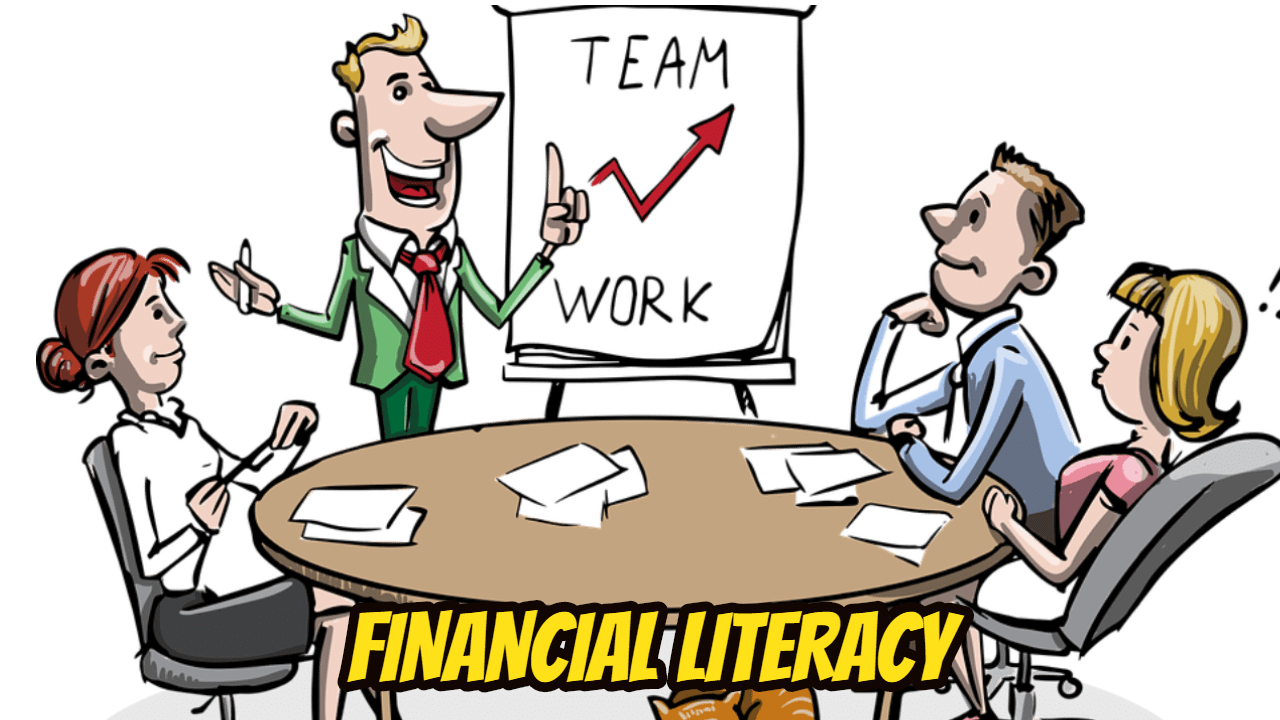what is financially literate
What is financially literate? When should it be learned?
Florida high school students will soon start learning more about how to stay financially healthy. Florida’s new financial literacy law requires high school students to take a personal finance course, and for the first time, administrators will be able to report how well they’ve met the requirement to the state Department of Education. The requirement, approved by the Florida Legislature last year, is a graduation requirement.
The course is required of all Florida students. Last week, Governor Ron DeSantis signed the legislation into law. Every high school student must take the course. I think this is great.
Financial literacy transcends national boundaries. Financial literacy is a necessity. Students in Ontario are now required to take a financial literacy course as part of the grade 10 curriculum. Students in high school now take a financial literacy course as part of the course curriculum. The purpose of Brandon’s Blog is to provide you with an understanding of what is financially literate and why it is important to have the proper financial knowledge to be able to make good financial decisions.
What is financially literate?: Financial literacy background
Despite there have been some improvements, there are lots of Canadians that still have a tough time with money abilities and living the best financial life possible. The Financial Consumer Agency of Canada was created in 2013 to aid with financial proficiency and increase the financial skills of Canadians.
Many Canadians have a post-secondary education but lack knowledge when they enter the workforce. People of all ages need financial literacy. Through financial literacy programs, students are now learning about budgeting, debt management, and retirement planning.
The United States also has a financial literacy problem. Lacking basic knowledge in financial matters, financial literacy isn’t something that comes naturally. While most of us have savings in our bank accounts, few of us have the money management skills or know-how to make our money last. You can learn the skills you need to succeed, and there’s no better time than now to start.

What is financially literate?: What is the best definition of financial literacy
Exactly what is financial literacy? Whats the best definition of financial literacy? Managing money, budgeting, and investing. Individuals should manage their financial affairs in a reliable manner.
Money can be used as a tool with such education. A person with financial literacy is able to save money, make wise investments, spend wisely, and manage debt. What is financially literate? It involves having access to, understanding, and effectively using financial management skills, knowledge, and information in order to make informed decisions.
What is financially literate?: What is financial literacy and why is it important?
Students in Grade 10 in Ontario are expected to gain an understanding of good financial health from the following concepts:
- fiscal responsibility; and
- Services are available to help them prepare for post-secondary life in a financially proficient manner.
Students are expected to:
- Understand the principles of financial responsibility.
- Identify various options for financial savings.
- Explore banking and other financial planning tools.

what is financially literate
What is financially literate?: Examples of the Ontario financial literacy program
The new financial literacy component of the Ontario career studies program consists of several parts for teaching money matters and increasing financial awareness. It includes:
- How to set up and follow a budget with monthly payments
- What a credit union is versus a bank
- Managing its own accounts
- Interest-bearing accounts and their interest rates
- TFSAs (tax-free savings accounts)
- RRSPs (registered retirement savings plans)
- Student loan debt
- Student loans (and the resulting student loan debt) from federal and provincial governments, such as those offered through the Ontario Student Assistance Program (OSAP)
- Bursaries and loans from local governments
- Loans from financial institutions (unsecured), such as banks or credit unions
- Lines of credit, credit cards, and overdrafts
- Understanding the advantages and disadvantages of different types of credit
- When used properly, a bank loan can be used to purchase a costly item, such as auto loans or a home mortgage and monthly mortgage payments
- The advantages of borrowing from family or friends, as well as the downsides of defaulting on repayment
What is financially literate?: Financial literacy for students in Florida
In Florida, Gov. Ron DeSantis signed a bill last week which is a financial literacy strategy. It requires high school students to take a financial literacy course before graduation. Students will need to take a half-credit course in personal financial literacy and money management under the Dorothy L. Hukill Financial Literacy Act. Under the law, the course must include basic skills with various financial products like managing a bank account, balancing a cheque book, credit cards, filling out a loan application, and calculating federal income taxes.
Students will also learn about other financial concepts such as local tax assessments, disputing incorrect billing statements, basic insurance policies, and simple contracts. The hope is that by learning financial literacy principles, they will have a brighter financial future.
Students should learn financial literacy as part of their overall education. Everybody benefits when students can have financial stability, know how to access financial resources, and get a leg up on their financial well=being. They will be prepared to manage their finances and possibly own a business one day. Financial literacy is a good cause that everyone should support.
With the new law, Florida becomes the 11th state in the country to require financial literacy as a graduation requirement. The states of Alabama, Mississippi, Missouri, Nebraska, North Carolina, Ohio, Rhode Island, Tennessee, Utah, and Virginia already had a law requiring the teaching of what is financial literacy to young adults.
In 2021, nearly 7 out of 10 high school students in the U.S. would have access to a standalone personal financial education, but only 1 of 5 would be required to take it to graduate.
Yanely Espinal, Next Gen‘s director of educational outreach, said several other states are considering a wide range of legislation requiring in-depth knowledge of personal finance courses, including Michigan, Georgia, and South Carolina. He believes that every state should require that financial literacy resources be available and that passing a course like the ones already in existence should be mandatory for graduation from high school.

What is financially literate?: What are some popular personal budget rules?
Budgeting can be stressful, but it doesn’t have to be. With a little patience and the right tools, you can learn how to budget so you know exactly what your money is doing, and where. It’s no exception with personal finance, either. With popular budgeting websites like Mint, YNAB, and You Need A Budget, it’s easy to learn how to budget so you can be in control of your money. But which tools should you use?
People talk about rules all the time. There are rules to live by, rules to obey, rules to prevent you from breaking them, and rules to prevent others from breaking them, too. When it comes to personal finance, there are some common rules that come up again and again when people talk about budgeting. Here are five of them:
- Live below your means when considering your monthly expenses.
- Pay yourself first. You never know when a life event will require you to find money fast.
- Start small and build up.
- Track your progress.
- Stick to it.
To abide by a budget is, above all, about control. Being in control of your finances will bring you peace of mind. Money is spent for a reason, and if we take the time to analyze our purchases, we can decide where to direct our money. Financial literacy and proper money management is a lifelong journey so that people will be able to overcome their financial hurdles.
What is financially literate? Key takeaways
Financial literacy for beginners is so important. More students need to come out of high school and begin their post-secondary careers, whatever that may be, by having better financial management skills. If so, then hopefully more people will be able to stay clear of insolvency. All Canadian provinces and all US states should make it mandatory to have to pass a financial literacy course in order to graduate. Rather than just having a financial literacy month, we should think in terms of a financial literacy year. Everyone should possess knowledge of the basics of money management.
I hope you found this what is financially literate Brandon’s Blog. Are you on the edge of insolvency? Are bill collectors hounding you? Are you ducking all your phone calls to the point where your voicemail box is always full?
If so, you need to call me today. As a licensed insolvency trustee (formerly called a trustee in bankruptcy) we are the only professionals licensed, recognized as well as supervised by the federal government to give insolvency assistance. We are also the only authorized party in Canada to apply remedies under the Bankruptcy and Insolvency Act (Canada). I can definitely help you to choose what is best for you to free you from your financial debt issues.
Call the Ira Smith Team today so we can get free you from the stress, anxiety, and discomfort that your cash issues have created. With the distinct roadmap, we establish simply for you, we will without delay return you right to a healthy and balanced problem-free life, Starting Over Starting Now.


